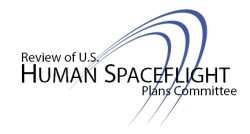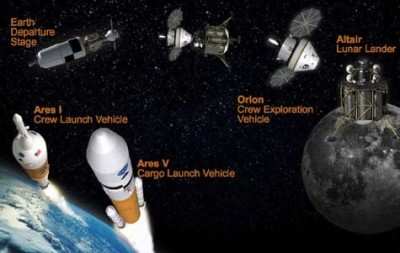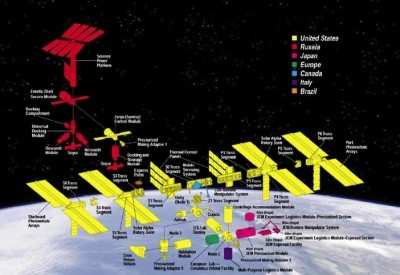155 Page Document Concludes Human Spaceflight On An
"Unsustainable Trajectory"
 NASA's Human Spaceflight
Commission, better known as the Augustine Commission after its
chairman Norman Augustine (pictured, below), has released its final
report for the White House, and the outlook for the future of
government-funded human spaceflight is fairly bleak.
NASA's Human Spaceflight
Commission, better known as the Augustine Commission after its
chairman Norman Augustine (pictured, below), has released its final
report for the White House, and the outlook for the future of
government-funded human spaceflight is fairly bleak.
"The U.S. human spaceflight program appears to be on an
unsustainable trajectory," the committee wrote in its opening
sentence. "It is perpetuating the perilous practice of pursuing
goals that do not match allocated resources. Space operations are
among the most demanding and unforgiving pursuits ever undertaken
by humans. It really is rocket science."
 The committee report stresses that space exploration has
become a global enterprise. "Many nations have aspirations in
space, and the combined annual budgets of their space programs are
comparable to NASA’s. If the United States is willing to lead
a global program of exploration, sharing both the burden and
benefit of space exploration in a meaningful way, significant
accomplishments could follow," the committee writes.
The committee report stresses that space exploration has
become a global enterprise. "Many nations have aspirations in
space, and the combined annual budgets of their space programs are
comparable to NASA’s. If the United States is willing to lead
a global program of exploration, sharing both the burden and
benefit of space exploration in a meaningful way, significant
accomplishments could follow," the committee writes.
Further, the committee acknowledges the contributions of
commercial spaceflight ventures. "If we craft a space architecture
to provide opportunities to this industry, there is the
potential—not without risk—that the costs to the
government would be reduced. Finally, we are also more experienced
than in 1961, and able to build on that experience as we design an
exploration program. If, after designing cleverly, building
alliances with partners, and engaging commercial providers, the
nation cannot afford to fund the effort to pursue the goals it
would like to embrace, it should accept the disappointment of
setting lesser goals."
The report documents in detail five areas of human activities in
space:
- What should be the future of the Space Shuttle?
- What should be the future of the International Space Station
(ISS)?
- On what should the next heavy-lift launch vehicle be
based?
- How should crews be carried to low-Earth orbit?
- What is the most practicable strategy for exploration beyond
low-Earth orbit?

Constellation Prgram Breakdown Source:
NASA
The committee recommends funding Shuttle operations at least
through 2011. "The Committee noted that the projected flight rate
is nearly twice that of the actual flight rate since return to
flight in 2005 after the Columbia accident two years earlier.
Recognizing that undue schedule and budget pressure can subtly
impose a negative influence on safety, the Committee finds that a
more realistic schedule is prudent. With the remaining flights
likely to stretch into the second quarter of FY 2011, the Committee
considers it important to budget for Shuttle operations through
that time."
Similarly, the committee recommends an extension of funding for
ISS. It seems unwise to de-orbit the Station after 25 years of
planning and assembly and only five years of operational life. A
decision not to extend its operation would significantly impair the
U.S. ability to develop and lead future international spaceflight
partnerships. Further, the return on investment from the ISS would
be significantly increased if it were funded at a level allowing it
to achieve its full potential.

ISS Breakdown Source: NASA
Looking to the future, the Associated Press reports that
Chairman Norman Augustine said in a news conference Thursday that
NASA should be concentration on larger rockets to take human
spaceflight beyond the moon. Given the cost in fuel that is
required to lift a lunar module off the moon's surface, Augustine
said it makes more sense to target landings on asteroids, or even a
Martian moon. A return to Earth's moon could be a good training
exercise, he said, but not the destination envisioned by the Bush
administration.
In the end, though, the decision rests with the Congress and the
President. White House spokesman Nick Shapiro said in an e-mail
comment "ultimately the president will be making the final
decision," though Congress does have a say in how tax dollars are
spent. In the meantime, AP reports that NASA is incrementally
delaying parts of the old moon program. It is reconsidering the $10
million per year allocated for a lunar lander that remains unbuilt,
and is waiting for Obama's decision on the Augustine panel
recommendations, said NASA spokesman Grey Hautaluoma.
FMI: http://www.nasa.gov/pdf/396093main_HSF_Cmte_FinalReport.pdf
 Classic Aero-TV: The Switchblade Flying Car FLIES!
Classic Aero-TV: The Switchblade Flying Car FLIES! ANN FAQ: Q&A 101
ANN FAQ: Q&A 101 ANN's Daily Aero-Term (04.12.24): Discrete Code
ANN's Daily Aero-Term (04.12.24): Discrete Code ANN's Daily Aero-Term (04.13.24): Beyond Visual Line Of Sight (BVLOS)
ANN's Daily Aero-Term (04.13.24): Beyond Visual Line Of Sight (BVLOS) ANN's Daily Aero-Linx (04.13.24)
ANN's Daily Aero-Linx (04.13.24)






